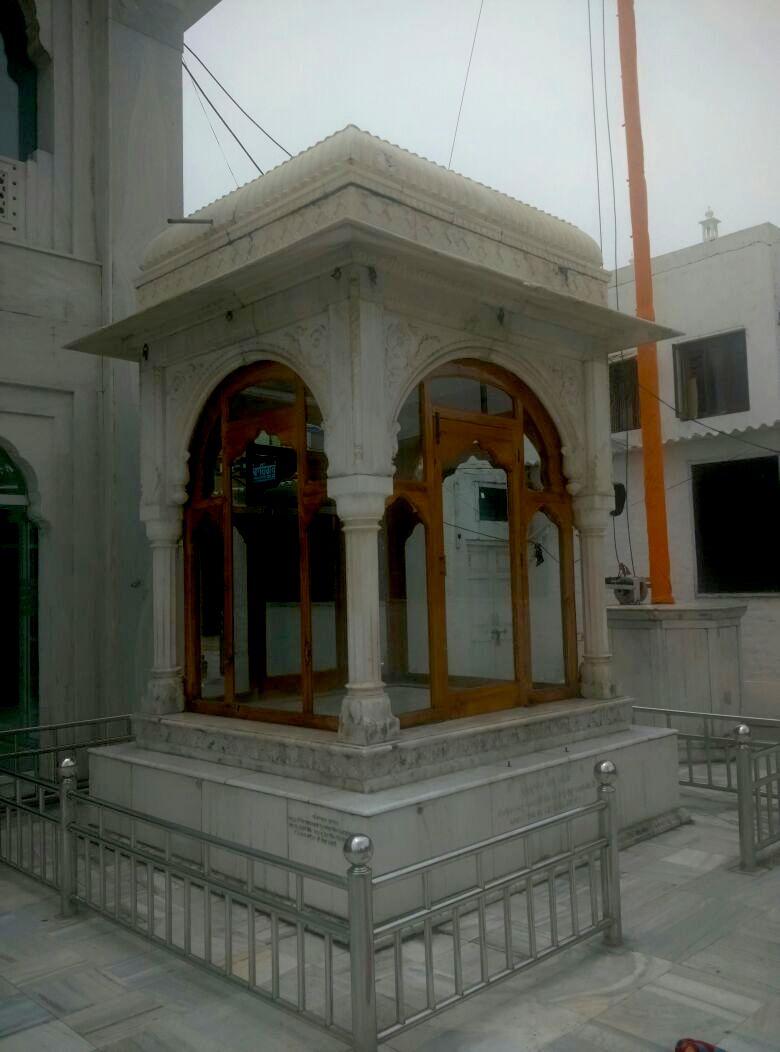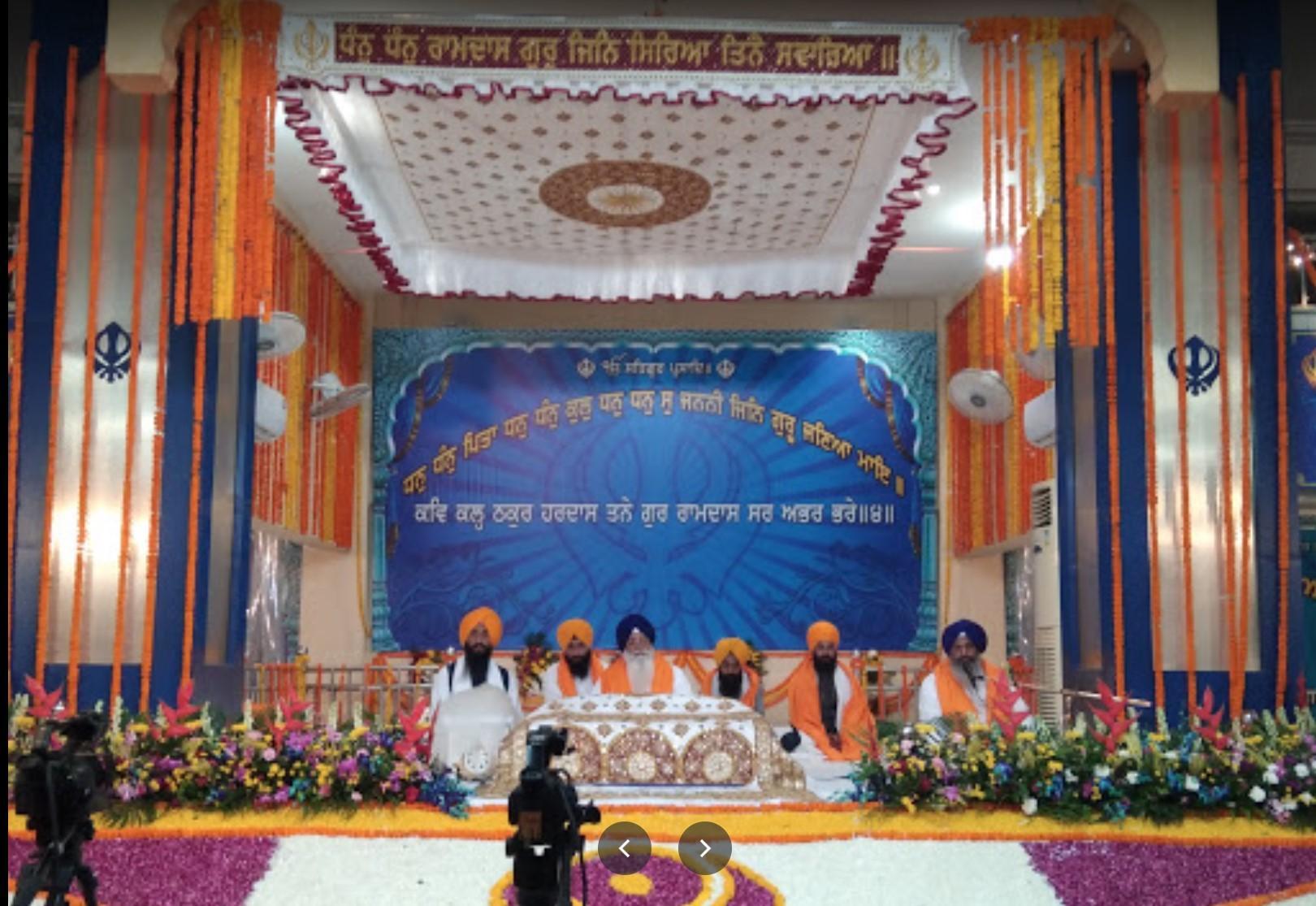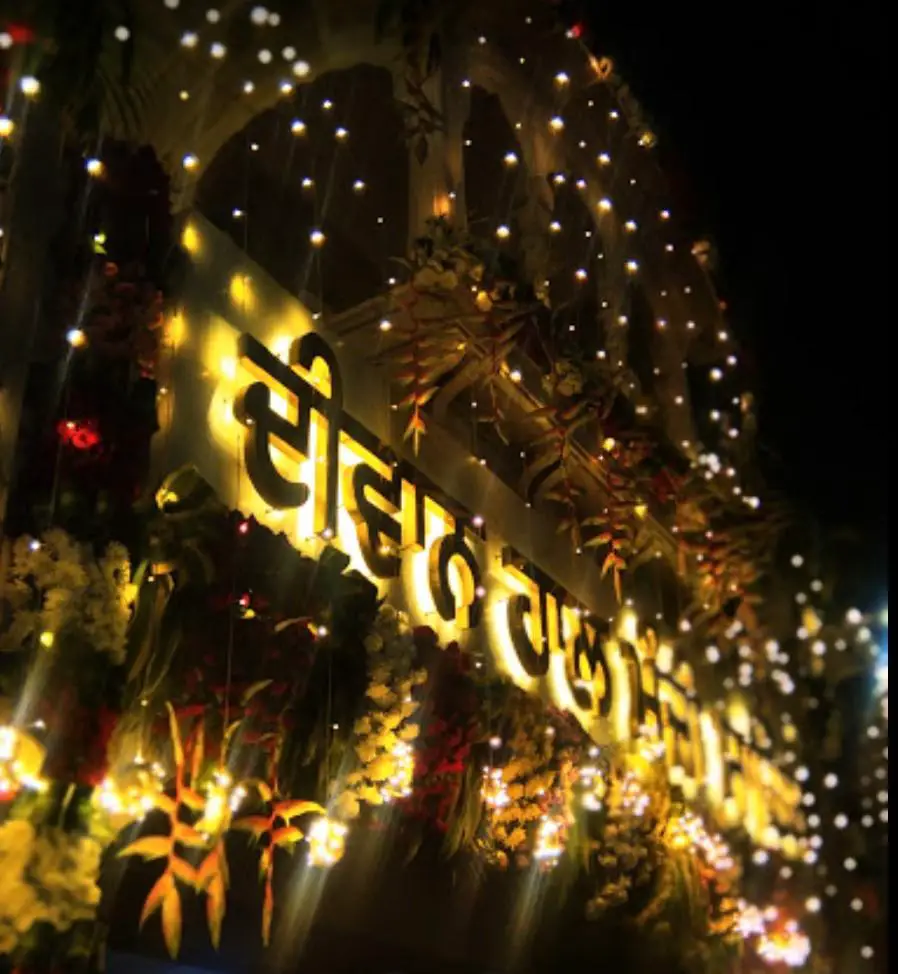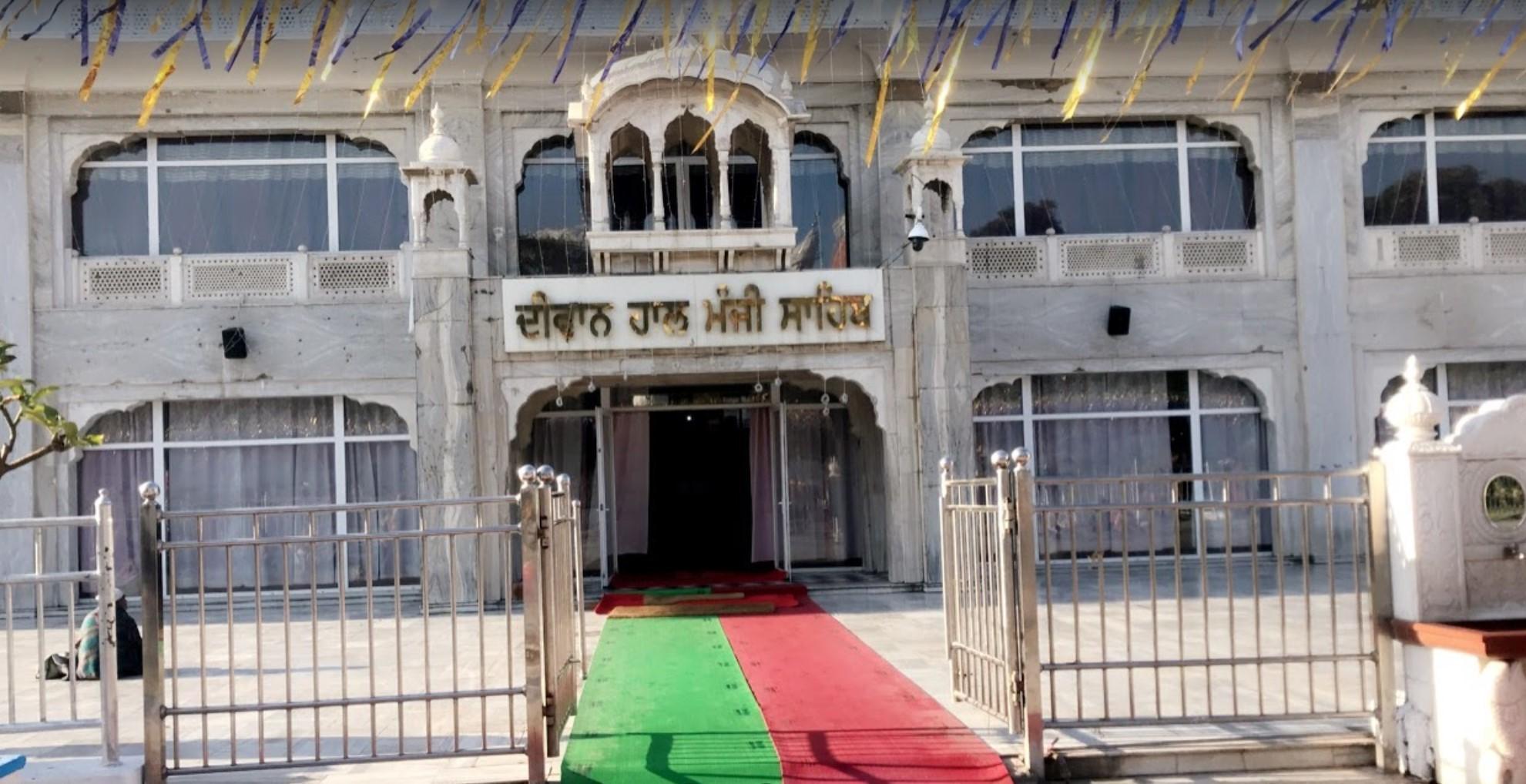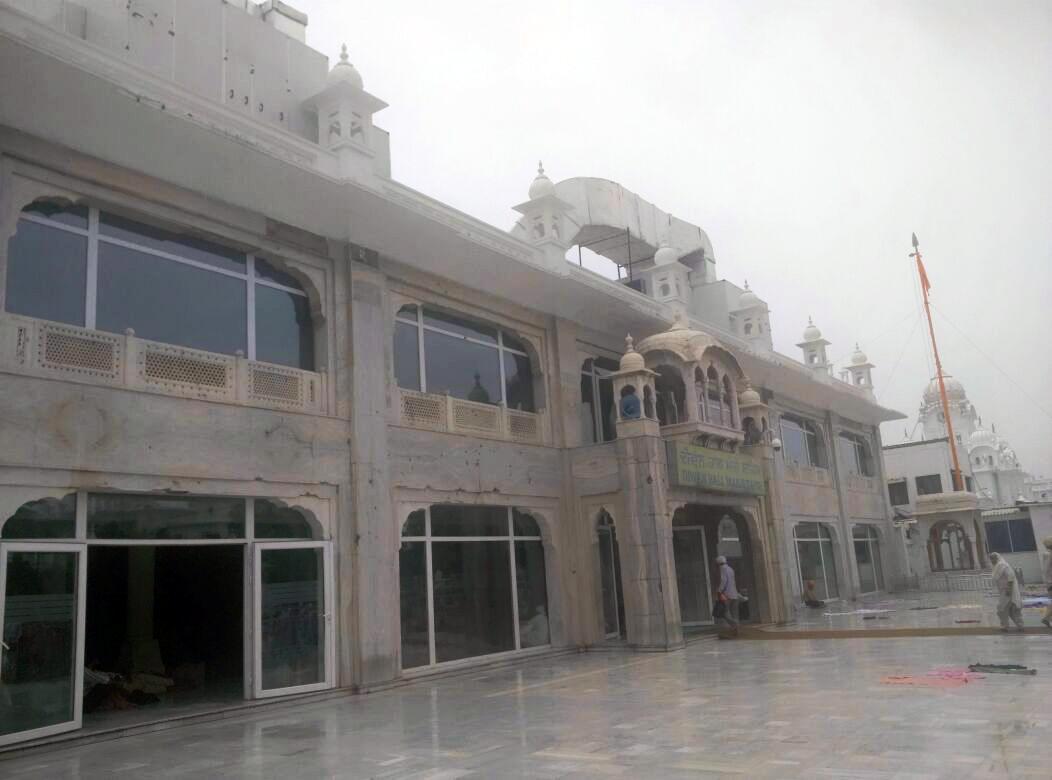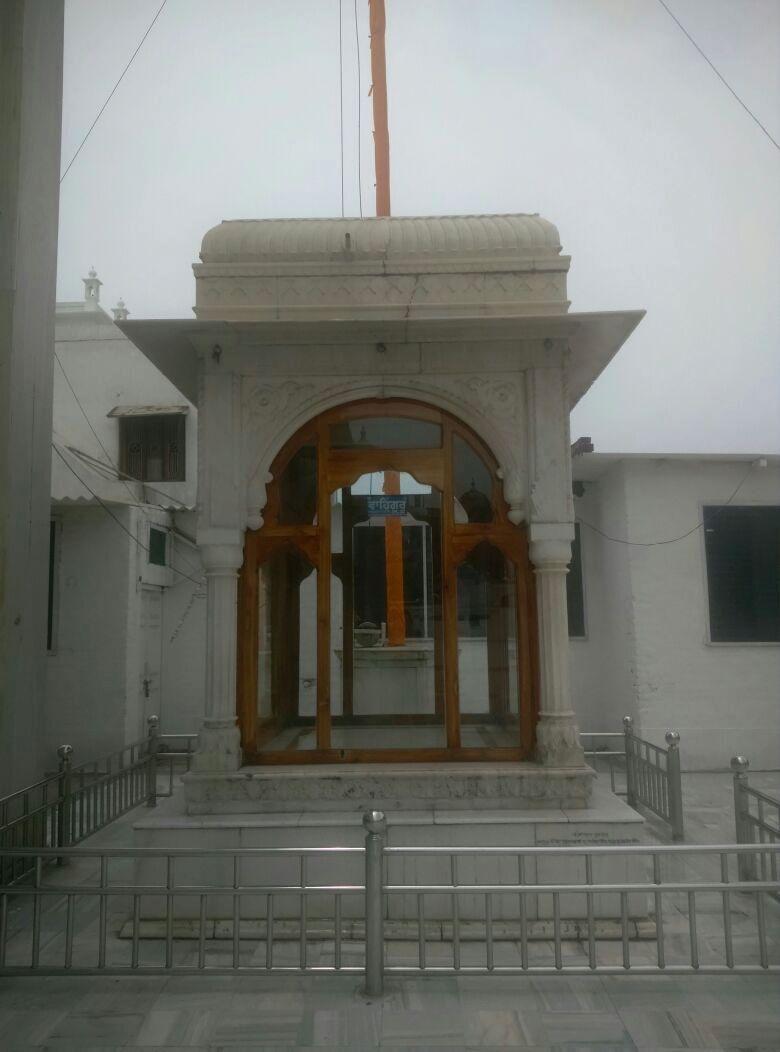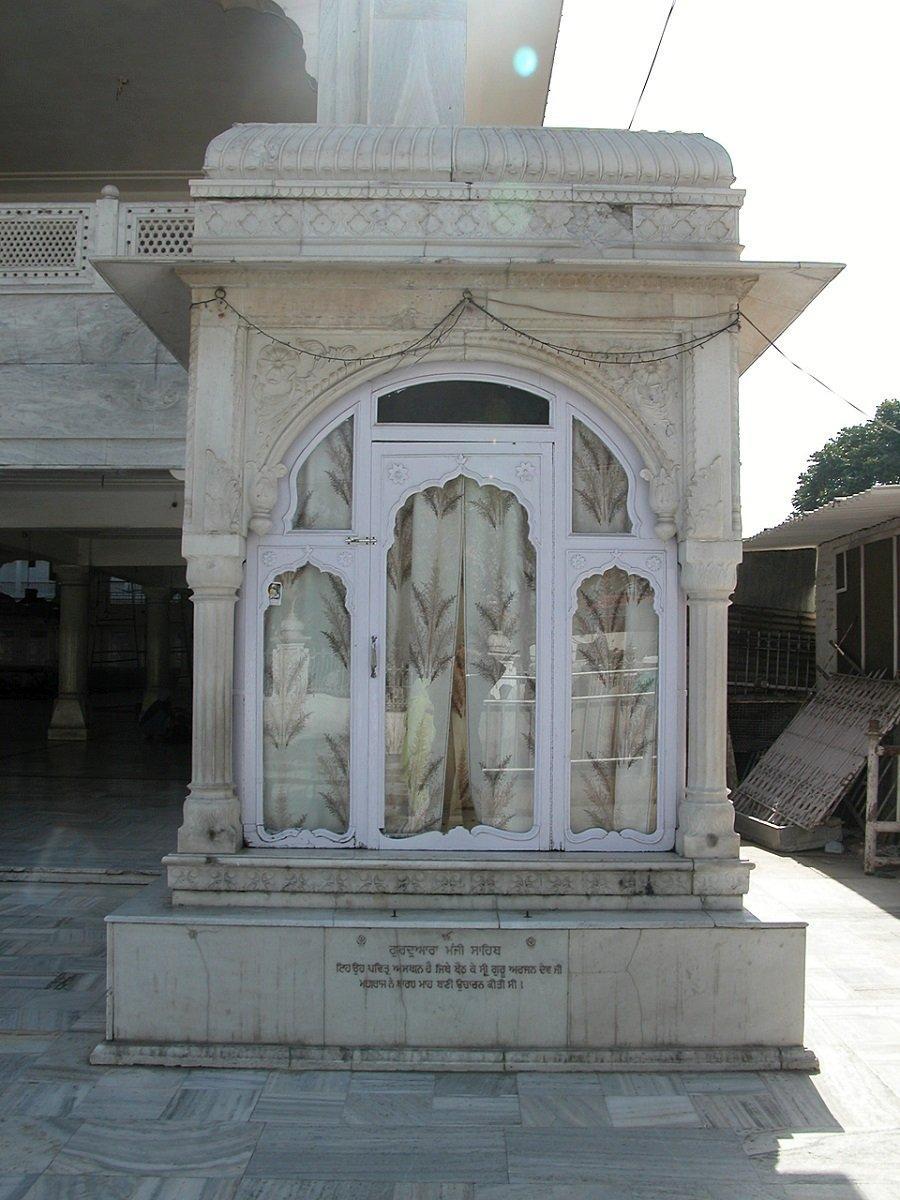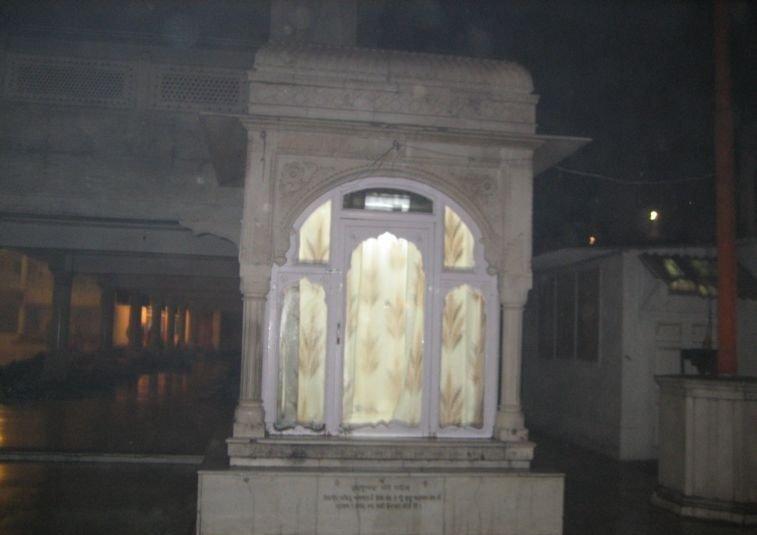Gurudwara Sri Manji Sahib, Harimandir Sahib
Gurudwara Sri Manji Sahib is situated in the district city Amritsar. Its situated opposite to the langar hall in the same campus of Sri Harimadir Sahib. Sri Guru Arjan Dev ji composed Barah Maaha di Baani here.
Bara Maha is Guru Arjan’s calendar poem in the Manjh measure included in the Sri Guru Granth Sahib Ji (Ang’s 133 to 136). The opening verse of the composition presents the binary theme of the poem; the situation of the human soul’s separation from the divine soul (kirati karam ke vichhure, bound by our deeds are we parted from you, God), and its quest for union with God (kari kirpa melahu ram, by your grace grant union, God).
Bara Maha is an allegorical composition. In it the virhan (separated bride) stands for the atman (human soul), and the spouse for Parmatma (the Supreme Soul or God). While formally Guru Arjan’s Bara Maha unfolds itself in the context of time (kald), its content is dedicated to the one that transcends time (Akal}.
The work comprises 14 stanzas, a prologue followed by one stanza each pertaining to the 12 months, and a concluding stanza forming an epilogue.
The theme of the poem has been announced in the opening stanza steeped in intense emotion: To us, from thee separated, as a consequence of our own deeds, O Lord, In thy grace grant reunion! Pointlessly we wandered in diverse directions, Worn out, to Your protection, have we repaired. Like a dry cow is my state, of use of none; A sapling without water, that never shall blossom. How can a forlorn woman, separated from her spouse, find peace? Cursed is her town. cursed her village, If her home the Lord has visited not. Of what worth are her embellishments, Her betel-flavoured mouth, and even her whole body? To one from her Lord separated, Even friends are a spectacle of doom. Supplicates Nanak: Be merciful And grant me devotion to your Name. 0, the Lord of abode imperishable! Unite me with thyself.
The subsequent 12 stanzas have a more or less similar structure. In each, the opening line voices a yearning for union with God. The subsequent lines expand the pathos of the opening line in a variety of moods consonant with the seasonal variation month by month. The last line of each stanza suggests one or another means for reunion with God.
The final stanza, the epilogue tends to reflect on the benefits that come to those who attain union with the Lord. The closing couplet of this stanza appears to epitomise the spirit of the entire work: Every month and day becomes for those who the grace of the Lord obtain. ‘Grant me thy Grace’, supplicates Nanak, ‘I crave for a glance of thy face.
